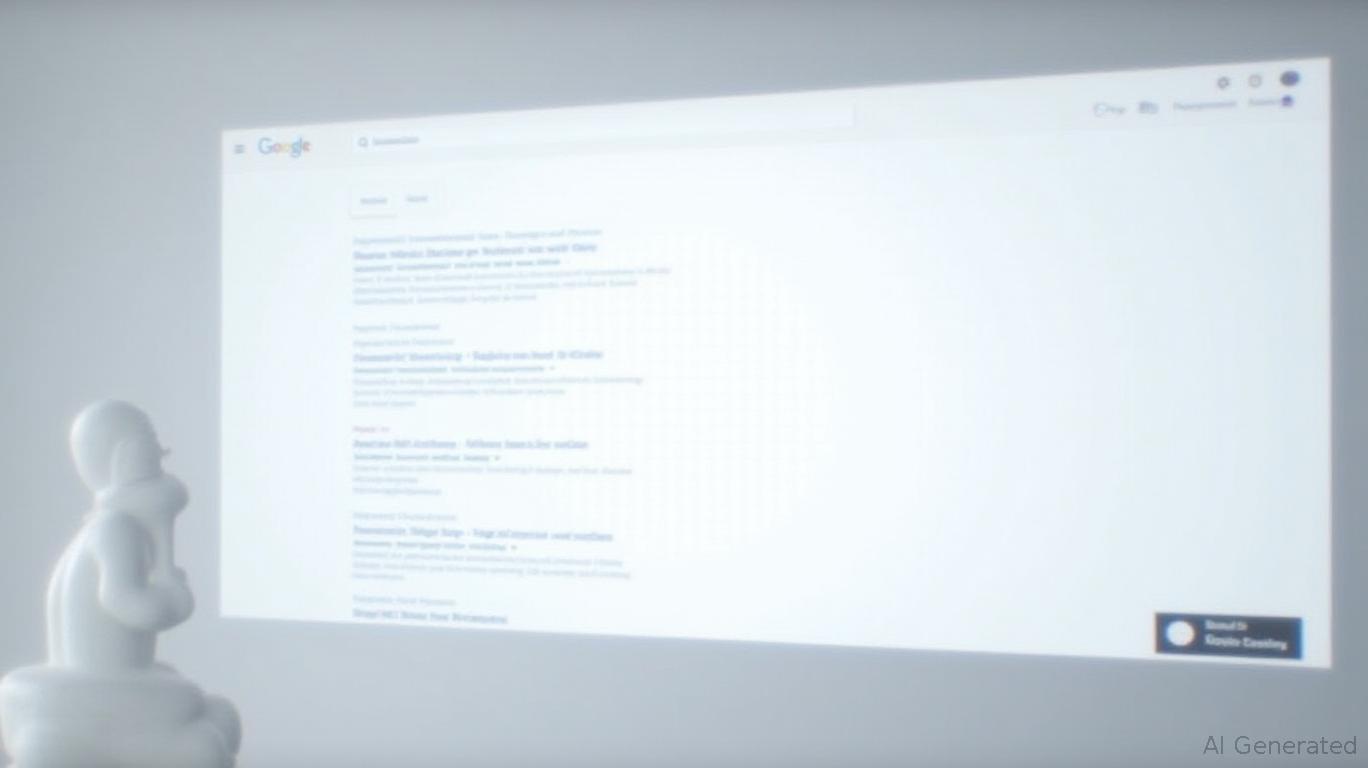News/
Articles/
Articles Details
Tracking the pulse of global finance, one headline at a time.
Alphabet’s Google has long dominated the digital advertising landscape, but its recent AI advancements unveiled at the 2025 Google I/O conference signal a new era of innovation. These tools are not just incremental upgrades—they’re foundational shifts that could further solidify Alphabet’s (NASDAQ: GOOGL) position as the advertising ecosystem’s backbone. For investors, the question is clear: How do these AI-driven changes impact Alphabet’s stock valuation, and is now the time to buy?
Google’s latest AI features are redefining how advertisers engage users, with implications for both revenue streams and competitive advantage. The AI Mode in Search, now fully rolled out in the U.S., allows users to ask longer, more complex queries, driving deeper engagement. Early data shows queries are two to three times longer than traditional searches, enhancing Google’s ability to serve hyper-relevant ads. The Visual Shopping feature, which leverages Gemini 2.5 and Google’s 50-billion-item Shopping Graph, is a game-changer. By enabling users to find products via visual preferences and even “try on” apparel virtually, this tool could boost conversion rates and reduce shopping cart abandonment—a direct boon for advertisers. 
Meanwhile, Agent Mode in the Gemini App automates tasks like apartment hunting, integrating with third-party services like Zillow. This not only improves user efficiency but also creates new ad opportunities by streamlining interactions between users and advertisers. For instance, Agent Mode could recommend a Zillow listing based on a user’s search history, generating a commission for Alphabet’s ad network.
The financial benefits of these AI tools are already visible. Alphabet reported a 12% revenue increase to $90.2 billion in Q1 2025, with Google Search, YouTube, and Network ads all contributing. Net income surged 46% to $34.5 billion, driven by margin improvements from AI’s cost efficiencies. The new Agentic Checkout feature, which automates purchases via Gemini, could further reduce transaction friction, increasing ad-driven sales pipelines.
Critically, Alphabet’s AI infrastructure—like the seventh-generation TPU (Ironwood), which boosts performance 10x over prior versions—reduces compute costs, enabling higher profit margins. This hardware advantage, combined with its vast data trove, creates a moat against competitors like Meta and Amazon.
Google’s AI tools aren’t isolated; they’re woven into its entire ecosystem. For example, Veo 3 and Imagen 4 allow marketers to generate high-quality ads quickly, reducing production costs and speeding time-to-market. Meanwhile, YouTube’s integration with Gemini’s creativity tools ensures advertisers can deliver seamless, personalized content across platforms.
Meta’s AI efforts, while aggressive, lack Google’s search data and cross-platform reach. Amazon’s ad push struggles to match Google’s contextual understanding. This ecosystem synergy gives Alphabet an edge in capturing incremental ad revenue from small businesses and enterprises alike.
Alphabet’s stock currently trades at a forward P/E of 23x, slightly below its five-year average of 25x. Given its 12% revenue growth and margin expansion, this could signal undervaluation. Competitors like Meta (FB) trade at 28x forward P/E, suggesting Alphabet’s stock may have upside.
However, risks remain. Regulatory scrutiny of data practices and economic downturns could dampen ad spending. Yet Alphabet’s AI-driven margin improvements and recurring subscription revenue (e.g., Google AI Ultra/Pro plans) provide resilience.
Alphabet’s AI advancements are structural wins, not one-off gimmicks. They enhance user engagement, improve ad targeting, and open new revenue streams (e.g., subscriptions). With a dominant market position and a widening lead in AI infrastructure, Alphabet is well-positioned to capitalize on digital advertising’s $600 billion market.
Recommendation: Investors should consider adding Alphabet to their portfolios, especially if the stock dips below $100 (a 20% discount to its current price). The AI dividend is still in its early innings, and Alphabet’s ecosystem dominance ensures sustained growth.
In the digital advertising arms race, Google’s AI is no longer just a tool—it’s a competitive weapon. For investors, that means long-term value.
No comments yet
website SEOWebsite Traffic
